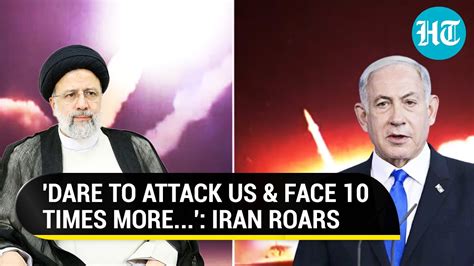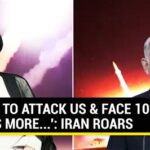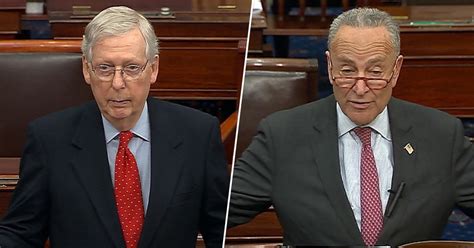
Following these guidelines meticulously is crucial.
Following are the rewritten news article and the associated FAQs:
McConnell Calls for Stronger U.S. Deterrent Against Iran Following Attacks
Senate Minority Leader Mitch McConnell has called for a more robust U.S. response to Iranian-backed aggression in the Middle East, arguing that recent American strikes have failed to establish a sufficient deterrent against further attacks. He emphasized the need for a clear strategy to protect U.S. personnel and interests in the region.
Following recent attacks on U.S. forces in Iraq and Syria, McConnell has been vocal in his criticism of the Biden administration’s approach to Iran, asserting that the current strategy is inadequate. He stated that “responding to attacks after they occur is not a strategy. It is damage control,” and called for a more proactive approach to deter future aggression. This call to action underscores growing Republican concern over the escalating tensions in the Middle East and the perceived vulnerabilities of U.S. forces stationed there.
McConnell’s statements come amidst heightened tensions in the region, fueled by the ongoing conflict in Gaza and the actions of Iranian-backed proxy groups. These groups have been increasingly targeting U.S. military installations in Iraq and Syria, leading to injuries and raising concerns about a broader escalation. The senator’s remarks reflect a broader debate within Washington about how to effectively manage the threat posed by Iran and its allies.
McConnell’s Critique of Current U.S. Strategy
McConnell’s primary argument is that the U.S. response to Iranian-backed aggression has been too reactive and not preventative. He believes that the current strategy of responding to attacks after they occur is insufficient to deter future aggression. According to McConnell, the United States needs to adopt a more assertive posture to dissuade Iran and its proxies from further hostile actions.
“The administration seems to believe that carefully calibrated responses will somehow convince Iran to alter its behavior,” McConnell stated. “But the evidence suggests that this approach is not working. Iran continues to act with impunity, emboldened by what it perceives as American weakness.” He suggests that the U.S. should consider a wider range of options, including more significant military strikes and increased economic pressure, to change Iran’s calculus.
McConnell highlighted the importance of a clear and consistent message to Iran, stating that the U.S. must demonstrate its resolve to protect its interests and personnel in the region. He argued that ambiguity or perceived weakness could embolden Iran and lead to further escalation. He specifically noted the need to ensure that Iran understands the consequences of its actions and that the U.S. is prepared to respond decisively to any further aggression.
Calls for a More Proactive Approach
In contrast to the current reactive approach, McConnell advocates for a more proactive strategy that would deter Iran from engaging in hostile activities in the first place. This could involve a range of measures, including:
- Increased Military Presence: Strengthening the U.S. military presence in the region to deter potential aggressors and provide a more robust defense against attacks.
- Expanded Sanctions: Implementing stricter economic sanctions on Iran to limit its ability to fund and support proxy groups.
- Diplomatic Pressure: Working with allies to isolate Iran diplomatically and pressure it to change its behavior.
- Targeted Strikes: Conducting preemptive strikes against Iranian-backed targets to disrupt their operations and deter future attacks.
McConnell emphasized that these measures should be implemented in a coordinated and comprehensive manner, with the goal of creating a credible deterrent that would dissuade Iran from further aggression. He also stressed the importance of working closely with allies in the region to ensure a unified front against Iranian expansionism.
The Broader Context of U.S.-Iran Relations
The current tensions between the U.S. and Iran are rooted in a long history of conflict and mistrust. The two countries have been at odds since the 1979 Iranian Revolution, which ousted the U.S.-backed Shah and established an Islamic Republic. Since then, the U.S. and Iran have clashed over a range of issues, including Iran’s nuclear program, its support for terrorist groups, and its role in regional conflicts.
Under the Obama administration, the U.S. and Iran reached a landmark agreement, known as the Joint Comprehensive Plan of Action (JCPOA), which limited Iran’s nuclear program in exchange for sanctions relief. However, the Trump administration withdrew from the JCPOA in 2018 and reimposed sanctions on Iran, leading to a sharp escalation in tensions.
The Biden administration has sought to revive the JCPOA, but negotiations have stalled due to disagreements over sanctions relief and other issues. In the meantime, tensions between the U.S. and Iran have continued to simmer, with frequent clashes between U.S. forces and Iranian-backed proxy groups in Iraq and Syria.
The Impact on Regional Stability
The ongoing tensions between the U.S. and Iran have significant implications for regional stability. The conflict in Gaza has further inflamed tensions, with Iranian-backed groups like Hezbollah and Hamas playing a prominent role. These groups have launched attacks against Israel and U.S. forces, raising the risk of a wider regional conflict.
The situation is further complicated by the involvement of other regional actors, such as Saudi Arabia and Turkey, who have their own interests and agendas. The U.S. is working to maintain stability in the region, but its efforts are complicated by the complex web of alliances and rivalries.
McConnell’s call for a stronger deterrent against Iran reflects growing concern that the current U.S. strategy is not effectively managing the risks. He argues that a more proactive approach is needed to prevent further escalation and protect U.S. interests in the region. However, any decision to escalate military action against Iran would carry significant risks and could have unintended consequences.
The Political Implications in the U.S.
McConnell’s criticism of the Biden administration’s Iran policy also has political implications within the United States. Republicans have long been critical of the administration’s efforts to revive the JCPOA and have called for a tougher stance against Iran. McConnell’s remarks are likely to resonate with Republican voters and could put pressure on the Biden administration to adopt a more assertive approach.
The debate over Iran policy is likely to continue to be a major point of contention between Republicans and Democrats in the coming months. With the 2024 presidential election on the horizon, the issue is likely to play a prominent role in the campaign.
Weighing the Risks and Benefits of Escalation
The decision to escalate military action against Iran is a complex one that involves weighing the risks and benefits. On the one hand, a stronger deterrent could dissuade Iran from further aggression and protect U.S. interests in the region. On the other hand, escalation could lead to a wider conflict, with potentially devastating consequences.
Some experts argue that a more assertive approach is necessary to prevent Iran from developing nuclear weapons and destabilizing the region. They believe that the current strategy of containment is not working and that Iran is becoming increasingly emboldened.
Other experts caution against escalation, arguing that it could lead to a costly and protracted conflict. They believe that diplomacy and economic pressure are the best tools for managing the threat posed by Iran.
Ultimately, the decision of how to respond to Iranian-backed aggression will rest with the Biden administration. The administration will need to carefully weigh the risks and benefits of different approaches and choose a strategy that best protects U.S. interests while avoiding a wider conflict.
Examining Potential U.S. Responses
Given the current context, it’s crucial to examine potential responses the U.S. could undertake, ranging from diplomatic efforts to military actions.
1. Enhanced Diplomatic Efforts: The U.S. could intensify diplomatic efforts to revive the JCPOA or explore alternative agreements that address concerns about Iran’s nuclear program and regional activities. This would involve engaging with Iran, as well as with other parties to the JCPOA, such as the European Union, Russia, and China. Success would depend on finding common ground on issues such as sanctions relief and verification mechanisms.
2. Strengthening Alliances: The U.S. could work to strengthen alliances with regional partners, such as Israel, Saudi Arabia, and the United Arab Emirates. This could involve increased military cooperation, intelligence sharing, and joint efforts to counter Iranian influence. A united front could deter Iran from further aggression and promote stability in the region.
3. Economic Pressure: The U.S. could ramp up economic pressure on Iran through sanctions and other measures. This could involve targeting Iranian oil exports, financial institutions, and individuals involved in supporting terrorism. The goal would be to limit Iran’s ability to fund its nuclear program and support proxy groups. However, it is important to consider the humanitarian impact of sanctions and ensure that they are targeted to avoid harming the Iranian people.
4. Cyber Operations: The U.S. could use cyber operations to disrupt Iranian activities, such as its nuclear program, missile development, and support for proxy groups. Cyberattacks could be used to disable Iranian infrastructure, steal sensitive information, and sow discord within the Iranian regime. However, there is a risk of escalation if cyberattacks are perceived as an act of war.
5. Covert Operations: The U.S. could conduct covert operations to disrupt Iranian activities, such as sabotage, assassinations, and support for opposition groups. Covert operations could be used to weaken the Iranian regime from within and undermine its ability to project power abroad. However, there is a risk of exposure and retaliation if covert operations are uncovered.
6. Limited Military Strikes: The U.S. could conduct limited military strikes against Iranian targets in Iraq, Syria, or Iran itself. These strikes could be aimed at disrupting Iranian military infrastructure, weapons stockpiles, or training camps. The goal would be to deter Iran from further aggression and weaken its ability to support proxy groups. However, there is a risk of escalation if strikes are perceived as an act of war.
7. Full-Scale Military Intervention: The U.S. could launch a full-scale military intervention in Iran with the goal of regime change or disarming Iran’s nuclear program. This would involve a large-scale invasion and occupation of Iran, with potentially devastating consequences for both countries. A full-scale military intervention would be a last resort and should only be considered if all other options have been exhausted.
Each of these potential responses carries its own set of risks and benefits. The U.S. will need to carefully weigh these factors before deciding on a course of action.
The Role of International Cooperation
Addressing the challenges posed by Iran requires international cooperation. The U.S. should work with its allies and partners to forge a united front against Iranian aggression and promote stability in the region. This could involve coordinating sanctions, sharing intelligence, and conducting joint military exercises.
The United Nations could also play a role in addressing the Iranian challenge. The Security Council could impose sanctions on Iran or authorize military action if necessary. However, the Security Council is often divided on issues related to Iran, making it difficult to reach consensus.
Conclusion
Senator McConnell’s call for a stronger U.S. deterrent against Iran reflects growing concern about the escalating tensions in the Middle East and the perceived vulnerabilities of U.S. forces stationed there. The debate over how to effectively manage the threat posed by Iran and its allies is likely to continue to be a major point of contention between Republicans and Democrats in the coming months. The Biden administration will need to carefully weigh the risks and benefits of different approaches and choose a strategy that best protects U.S. interests while avoiding a wider conflict. The path forward will require a nuanced approach that combines diplomatic efforts, economic pressure, and military deterrence, all while working closely with allies and partners to promote stability in the region. The complexities of the situation demand a comprehensive and well-considered strategy to navigate the challenges ahead. The absence of a clear and decisive strategy risks further escalation and instability, underscoring the urgency of the situation.
Frequently Asked Questions (FAQs)
1. What is Senator McConnell’s main criticism of the Biden administration’s Iran policy?
Senator McConnell criticizes the Biden administration’s approach as being too reactive rather than proactive. He believes that responding to attacks after they occur is not a sufficient deterrent and argues that the U.S. needs a more assertive strategy to prevent future aggression from Iran and its proxy groups. He states that the current approach isn’t working, and Iran continues to act with impunity, emboldened by perceived American weakness.
2. What specific measures does McConnell suggest for a more proactive approach to deterring Iran?
McConnell suggests several measures, including increasing the U.S. military presence in the region, expanding economic sanctions on Iran, applying diplomatic pressure in concert with allies, and considering targeted strikes against Iranian-backed targets to disrupt operations and deter future attacks. He emphasizes that these measures should be implemented in a coordinated and comprehensive manner.
3. What is the historical context of U.S.-Iran relations that contributes to the current tensions?
The current tensions are rooted in a long history of conflict since the 1979 Iranian Revolution. Key issues include Iran’s nuclear program, its support for terrorist groups, and its role in regional conflicts. The U.S. withdrawal from the JCPOA in 2018 and the reimposition of sanctions further escalated tensions, leading to frequent clashes between U.S. forces and Iranian-backed proxy groups.
4. How does the conflict in Gaza impact the tensions between the U.S. and Iran?
The conflict in Gaza has further inflamed tensions in the region, with Iranian-backed groups like Hezbollah and Hamas playing a prominent role. These groups have launched attacks against Israel and U.S. forces, raising the risk of a wider regional conflict. The involvement of other regional actors also complicates the situation, making it harder for the U.S. to maintain stability.
5. What are some potential risks and benefits of escalating military action against Iran, according to experts?
Some experts argue that a more assertive approach is necessary to prevent Iran from developing nuclear weapons and destabilizing the region. They believe that the current strategy of containment is not working and that Iran is becoming increasingly emboldened. However, other experts caution against escalation, arguing that it could lead to a costly and protracted conflict. They believe that diplomacy and economic pressure are the best tools for managing the threat posed by Iran.


![Oreo’s [Flavor] So Good, Fans May Demand a Permanent Spot!](https://jelajahtekno.com/wp-content/uploads/2025/06/unnamed-file-855-150x150.jpg)






